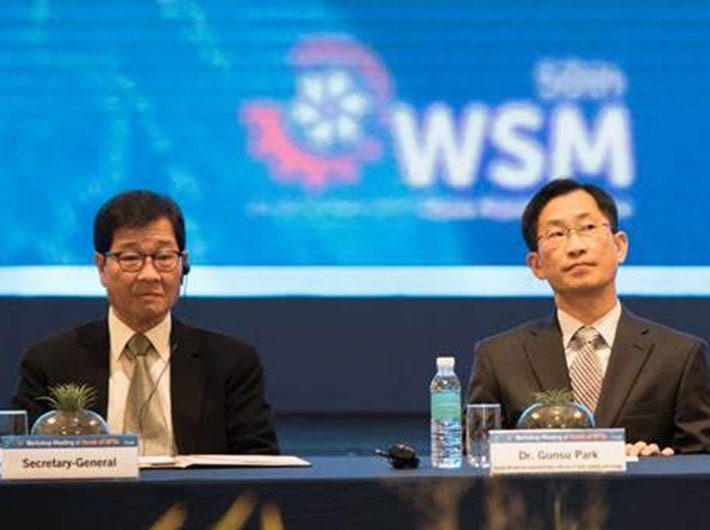We need to rethink how we can also shape the national productivity agendas of member countries, said APO chief Santhi Kanoktanaporn
GN Bureau | October 25, 2017

The final ‘Report of India’s G20 Task Force on Digital Public Infrastructure’ by ‘India’s G20 Task Force on Digital Public Infrastructure for Economic Transformation, Financial Inclusion and Development’ was released in New Delhi on Monday. The Task Force was led by the
Mahabharata: A World War By Gaurang Damani Sanganak Prakashan, 317 pages, Rs 300 Gaurang Damani, a Mumbai-based el
With the return of the NDA to power in the recently concluded Lok Sabha elections, all eyes are now on finance minister Nirmala Sitharaman’s full budget for the FY 2024-25. The interim budget presented in February was a typical vote-on-accounts, allowing the outgoing government to manage expenses in
Futuristic technologies such as 5G are already here. While urban users are reaping their benefits, these technologies also have a potential to transform rural areas. How to unleash that potential is the question. That was the focus of a workshop – “Transforming Rural Landscape:
Prime minister Narendra Modi, accompanied by president Vladimir Putin, visited the All Russian Exhibition Centre, VDNKh, in Moscow Tuesday. The two leaders toured the Rosatom Pavilion at VDNKh. The Rosatom pavilion, inaugurated in November 2023, is one of the largest exhibitions on the histo
President Droupadi Murmu on Monday morning spent some time at the sea beach of the holy city of Puri, a day after participating in the annual Rath Yatra. Later she penned her thoughts about the experience of being in close commune with nature. In a message posted on X, she said: